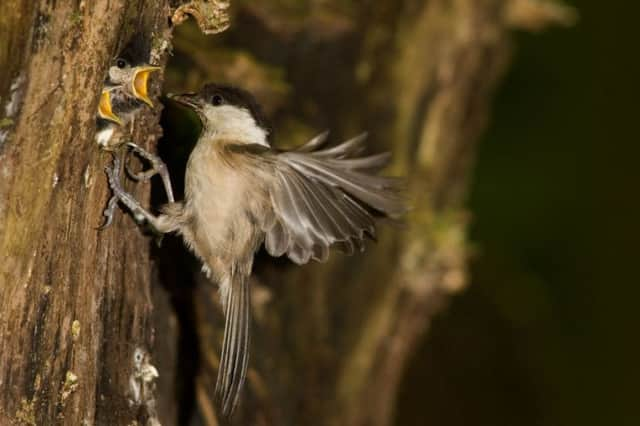Sheffield threatened bird project to start


This project is focusing on three woods in the Stocksbridge area – Fox Glen, Pot House Wood and Newhall Wood. Data from the Sheffield Bird Study Group has shown there is a population of the birds in the area. The South Yorkshire Forest Enterprise Trust will oversee work to create suitable habitat for them, enabling them to re-colonise the area.
Work will include planting trees to provide suitable nesting sites in the future, installing nest boxes, thinning trees to provide suitable open habitat, and undertaking drainage work to provide the damp conditions that willow tits find favourable. It is anticipated that the work will be complete by March 2018.
Advertisement
Hide AdAdvertisement
Hide AdIn cooperation with the Steel Valley Project, the scheme will train local people in countryside management and nature conservation work through volunteering opportunities. These will be available throughout the course of the project. Volunteers will gain skills, knowledge, training and confidence during the course of the project, enabling them to go on to further training or employment in the environment sector.
Funding for the work is coming from The Veolia Environmental Trust who have awarded a grant of £23,827 through the Landfill Communities Fund, Sheffield City Council, which has awarded £6,200, and the Steel Valley Project, which has awarded £800.
Willow Tit numbers have declined by 88% between 1970 and 2006 and it is listed on the UK’s ‘Red List of Birds of Conservation Concern’. It is also a ‘UK BAP Priority Bird Species’. Once the project is complete, the area will continue to be monitored by Sheffield Bird Study Group.
Johanna Mawson of the South Yorkshire Forest Enterprise Trust says, “This work will create the ideal home for this severely declining species, giving them the chance to make some headway in reversing the severe decline they have been subjected to over the past 40 years or more. The project will also protect and improve the landscape for the benefit of people visiting and enjoying the area.”
Advertisement
Hide AdAdvertisement
Hide AdThe Executive Director of The Veolia Environmental Trust, Paul Taylor, adds, “We support community and environmental projects across England and Wales and it is always great to hear about the start of one we are helping. We love it when volunteers get involved with schemes we are helping. I look forward to hearing about the progress of their hard work over the next year.”